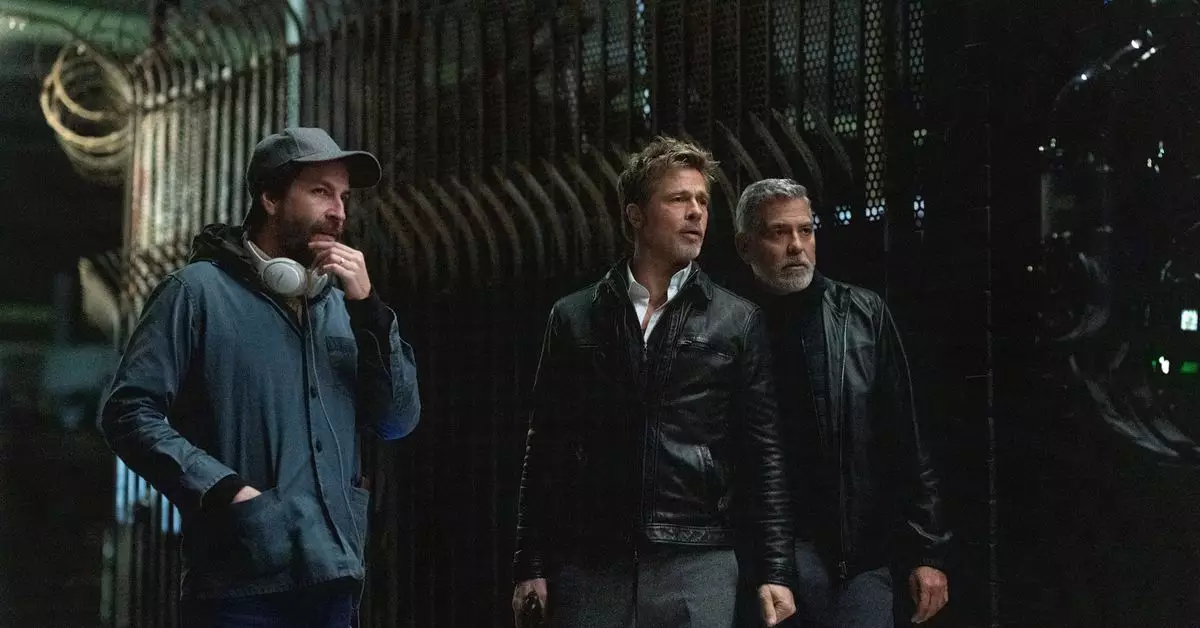In an era where streaming platforms dominate the entertainment landscape, the intricate relationship between filmmakers and these platforms remains fraught with tension and uncertainty. The recent revelations regarding Jon Watts, the director of the critically acclaimed “Wolfs” and its supposed sequel, illuminate the inherent challenges faced by creative professionals when traditional cinematic norms clash with the evolving business strategies of tech companies like Apple. As a director who has navigated the landscape of blockbuster films, Watts’s withdrawal from the “Wolfs” sequel serves as a case study in the shifting paradigms of film production and distribution amidst the streaming revolution.
Watts’s decision to back out of the sequel, citing a breakdown in trust with Apple, underscores a significant dilemma that many creatives are encountering today. The shift from a broad theatrical release to a limited run poses fundamental questions about the integrity of artistic vision in relation to commercial decision-making. There is an inherent expectation among filmmakers that their visions should remain intact, but the pressures from tech giants to prioritize financial considerations are often at odds with creative aspirations.
Recent trends suggest that the streaming industry grapples with the financial implications of high-stakes filmmaking. Apple’s decision to scale back its theatrical ambitions for “Wolfs” due to concerns about overspending after a series of box office failures reflects a growing wariness in the industry—a desire to protect profit margins while still seeking mainstream success. The industry is observing an interesting pivot where streaming services, once seen as liberators for filmmakers, now are asserting more control over the creative process.
In contrast, the success of Doug Liman’s “The Instigators,” which thrived in a limited release format and drew considerable engagement from viewers on Apple TV Plus, exemplifies a dynamic success within the same content delivery paradigm. Liman’s preference for working with Apple, as opposed to other platforms, showcases a selective nature regarding partnerships based on trust and transparency. His affinity for transparent dealings with Apple as opposed to Watts’s criticism highlights the fractured perceptions that exist among directors in their interactions with streaming services.
Directors’ Voices: The Need for Creative Autonomy
Steve McQueen’s sentiments regarding his limited release for the WWII film “Blitz” further amplify this conversation. The filmmaker’s disappointment over the restricted theatrical exposure speaks volumes about the anxieties surrounding commercial pressures imposed on creators. When directors feel sidelined, the overall quality and integrity of cinematic expression come into question. There lies a crucial need for a balance between the blinding prospect of financial returns and the unwavering support of creative autonomy.
As streaming services continue to redefine the infrastructures of content consumption, the need for clear communication and respect for the artistic process becomes increasingly essential. The compromise between profit motives and filmmakers’ creative control is asking for innovation in how these collaborations are structured. Filmmakers must feel secure in their partnership with tech companies, free from the fear of last-minute changes that could derail their visions.
The ongoing dialogue about the future of filmmaking in the streaming era hints at a determining phase for an industry in flux. Filmmakers like Watts, Liman, and McQueen need to push for better frameworks that safeguard their interests while still delivering quality content to a ravenous audience. If streaming companies desire to continue attracting top-tier talent, they must foster environments where creativity can flourish without interference.
The crux of the issue rests upon building trust and understanding within these partnerships. As filmmakers voice their concerns and demand respect for their visions, the industry must evolve—creating pathways for innovation without sacrificing artistic integrity. As we look ahead, the hope is for a more collaborative and supportive relationship between creativity and commerce, paving the way for a robust future in entertainment that honors the artistry behind filmmaking.


Leave a Reply